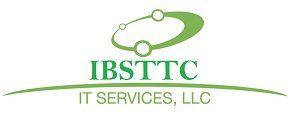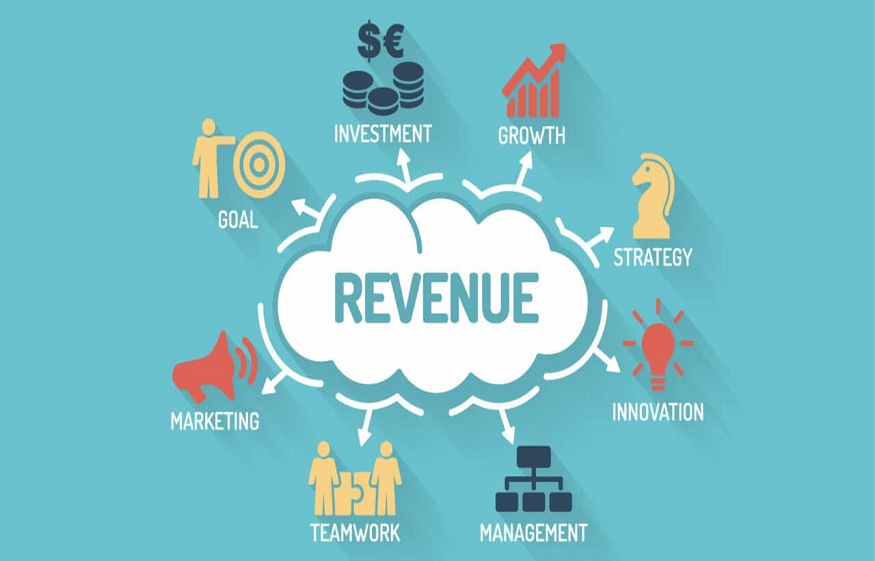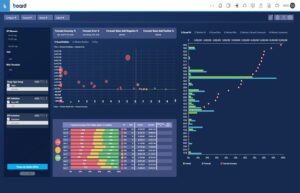Maximizing revenue is a priority for hoteliers in today’s fiercely competitive hospitality sector. Hotels are increasingly using technology-driven solutions like Hotel Revenue Management System and Software Revenue Management to accomplish this goal. In order to make wise revenue decisions, these cutting-edge tools analyze data, estimate demand, and optimize pricing tactics. Let’s look at how optimizing hotel revenue streams, generating profitability, and enhancing overall financial performance are all made possible by software revenue management.
Getting to Know Software Revenue Management
Software Revenue Management is a data-driven methodology that optimizes pricing and revenue strategies using cutting-edge algorithms and analytics. It enables lodging establishments to examine a significant lot of information, such as historical booking patterns, rivals’ prices, seasonal demand, and market trends. With this knowledge, hoteliers may make wise choices to increase revenue.
Adaptive Pricing for the Best Room Rates
Dynamic pricing is one of the main advantages of management of software revenue. Dynamic pricing, as opposed to fixed pricing models, alters room prices in real-time in response to demand, availability, and rival rates. Hotels may increase bookings during seasons of high demand and profit from periods of low demand by selecting the best prices for each room.
Accurate Demand Forecasting
Forecasting demand accurately is essential for maximizing earnings. Systems for managing software revenue use sophisticated algorithms to examine past data and spot trends in need. It makes it possible for hoteliers to more accurately estimate future demand and make data-driven pricing and inventory management decisions.
Market segmentation and personalization
Thanks to management of software revenue, hotels can provide tailored prices and deals to various consumer segments. Hotels can draw in a wide variety of visitors and maximize revenue from each segment by customizing offers to particular guest profiles and interests.
Allocation and inventory optimization
Effective inventory management is a critical element of software revenue management. Through the dynamic management of room inventory, hotels can increase the number of available rooms while avoiding over- and underbooking. Occupancy rates rise as a result, and revenue potential also rises.
Real-time reporting and analysis
Real-time reporting and analysis have become indispensable tools for businesses across many sectors, including the hospitality sector. In the hotel sector, real-time reporting and analysis provide instant access to critical data and insights for hoteliers. With this ability, they can speed up procedures, make informed decisions, and enhance the passenger experience.
Gaining Access to Up-to-Date and Valuable Insights
Through real-time data and analysis, hoteliers have access to timely and valuable information regarding the functioning of their businesses. Key performance indicators (KPIs) such as occupancy rates, average daily rates (ADR), and revenue per available room (RevPAR) may be monitored and analyzed. This recent information makes it simple to identify trends, opportunities, and impediments.
Making Responsive Decisions
It’s essential in a fast-paced industry like hospitality to react quickly to shifting market circumstances. Making timely, data-driven decisions is possible for hoteliers through real-time reporting and analysis. For instance, hoteliers can rapidly modify price and inventory distribution to take advantage of a sudden increase in bookings for a specific period.
Increasing Revenue Management Efficiency
When it comes to improving revenue management tactics, real-time data and analysis are crucial. Hotels can adopt dynamic pricing and promotional offers by continuously monitoring real-time demand patterns and competition rates. This proactive approach increases the hotel’s competitiveness in the market and maximizes income potential.
Improving the Guest Experience
In the hotel sector, client pleasure is of utmost importance. Real-time reporting and analysis offer insightful data on customer opinions, tastes, and service patterns. Hotels can quickly pinpoint areas for development and respond to customer complaints, improving the entire visitor experience.
Streamlining processes and allocating resources
Smooth hotel operations depend on effective procedures. Real-time data and analysis contribute to the streamlining of processes by quickly locating bottlenecks and inefficiencies. To maximize operational effectiveness, hoteliers can keep an eye on employee performance, control inventory levels, and deploy resources wisely.
Tracking sales and marketing performance
Hotels may monitor the effectiveness of their marketing and sales initiatives with the help of real-time reporting and analysis. Hotels may improve their marketing tactics to target the correct demographic and increase returns on investment (ROI) by examining the real-time effects of marketing initiatives.
Identification of Market Trends and Opportunities
Hotels need to stay ahead of market trends to be competitive. In-the-moment research and analysis help hoteliers discover changing consumer patterns and spot untapped market niches. Hotels may quickly react to shifting market circumstances and achieve a competitive advantage by taking a proactive strategy.
Bringing Together Data from Various Sources
Data from several sources, including Property Management Systems (PMS), Central Reservation Systems (CRS), and consumer feedback platforms, can be integrated with real-time reporting and analytic tools. Hoteliers may gain a thorough insight into their company performance and customer feedback in real-time thanks to this holistic perspective of data.
Setting up Pricing Rules and Rate Parity
Hotels are able to preserve rate parity across numerous distribution channels thanks to software revenue management. Rate parity guarantees that the same room is offered at the same price irrespective of the booking platform, preventing rate disparities that might erode visitor confidence and ruin the hotel’s reputation. Hotels can also establish pricing guidelines and limitations to avoid overbooking or underselling rooms, further maximizing revenue streams.
Making the most money per available room (RevPAR)
The revenue earned per available room, or RevPAR is a crucial performance indicator for the hotel sector. By ensuring that rooms are reasonably priced and filled, management of software revenue is essential for increasing RevPAR. Hotels can increase overall income by maximizing RevPAR without necessarily selling more rooms.
Conclusion
To summarize, Software Revenue Management has become the secret to enhancing hotel revenue streams and boosting profitability in the hospitality sector. Through the use of real-time demand forecasting and dynamic pricing techniques, this cutting-edge solution equips hotels to make data-driven decisions and increase room income. Only by selling more rooms can hoteliers achieve a balanced mix of visitors and increase overall income by optimizing inventory allocation, preserving rate parity, and improving competitive positioning. By embracing management of software revenue, hotels can remain competitive, adapt to market dynamics, and make sure that their pricing plans align with customer demand, resulting in improved financial performance and sustainable success in a fiercely competitive sector.



